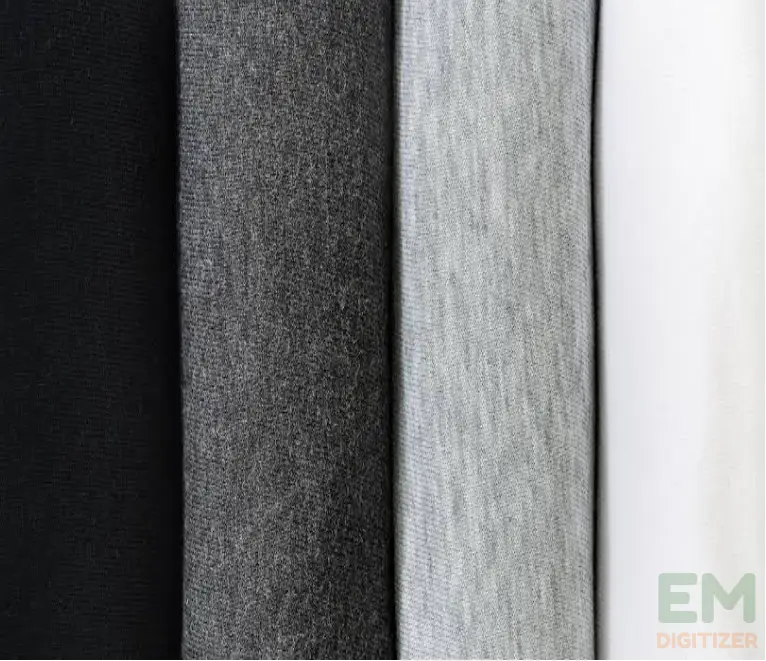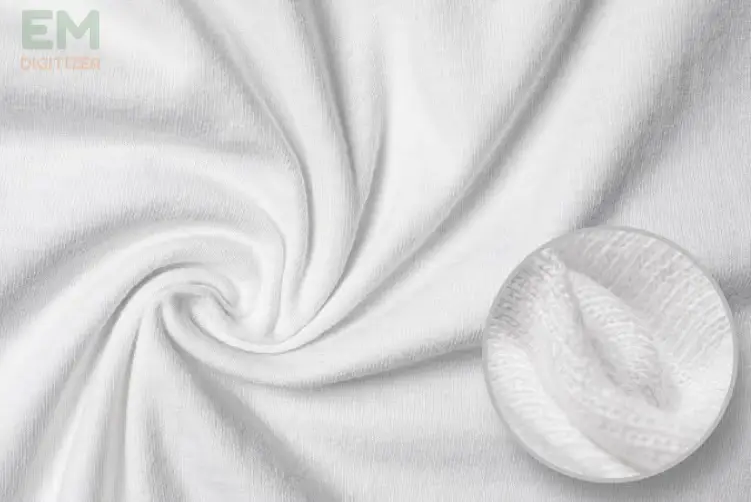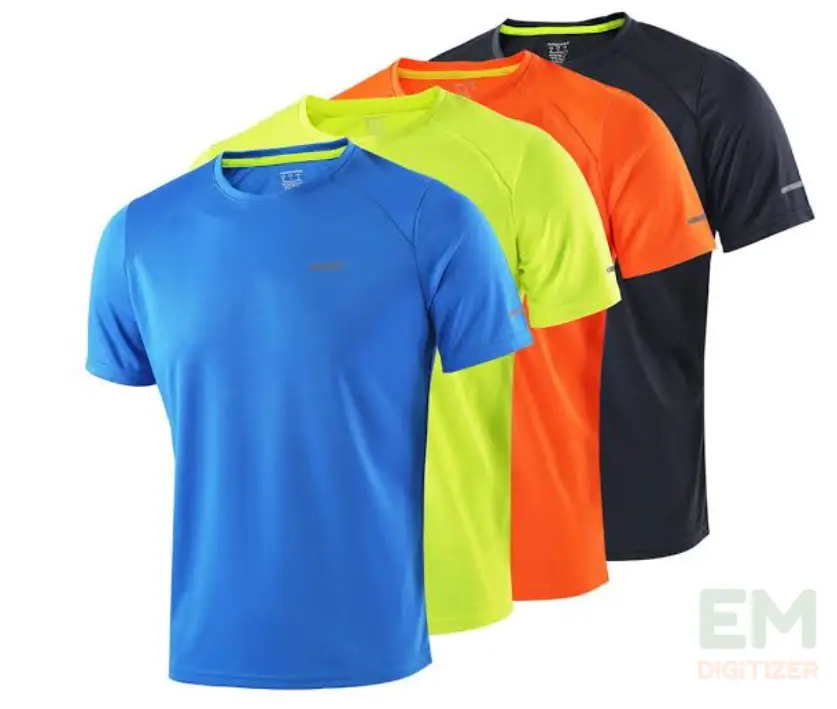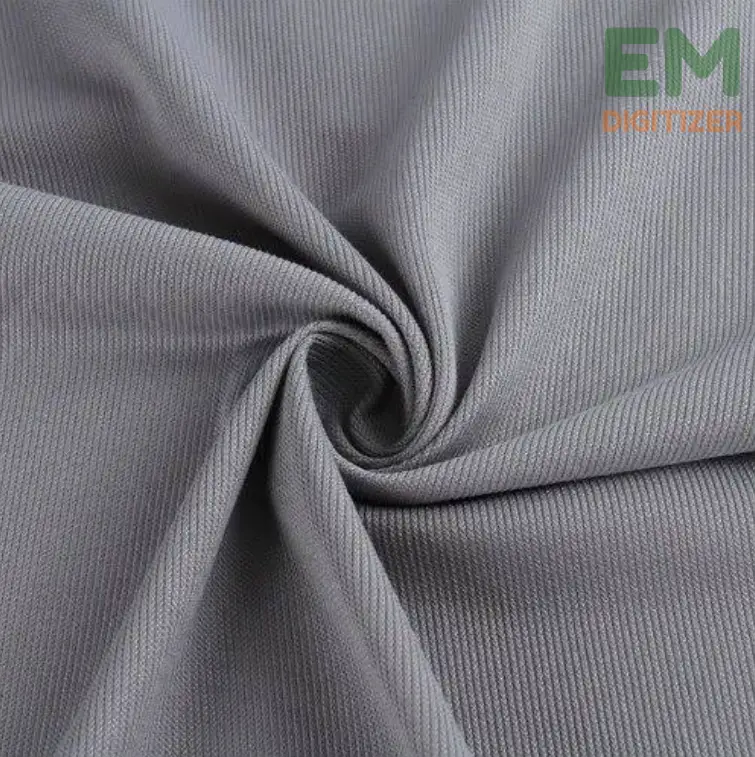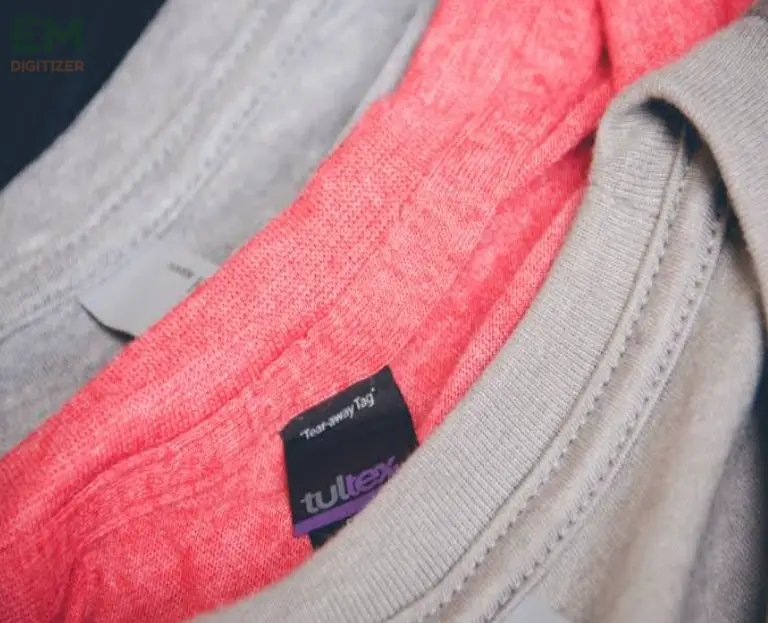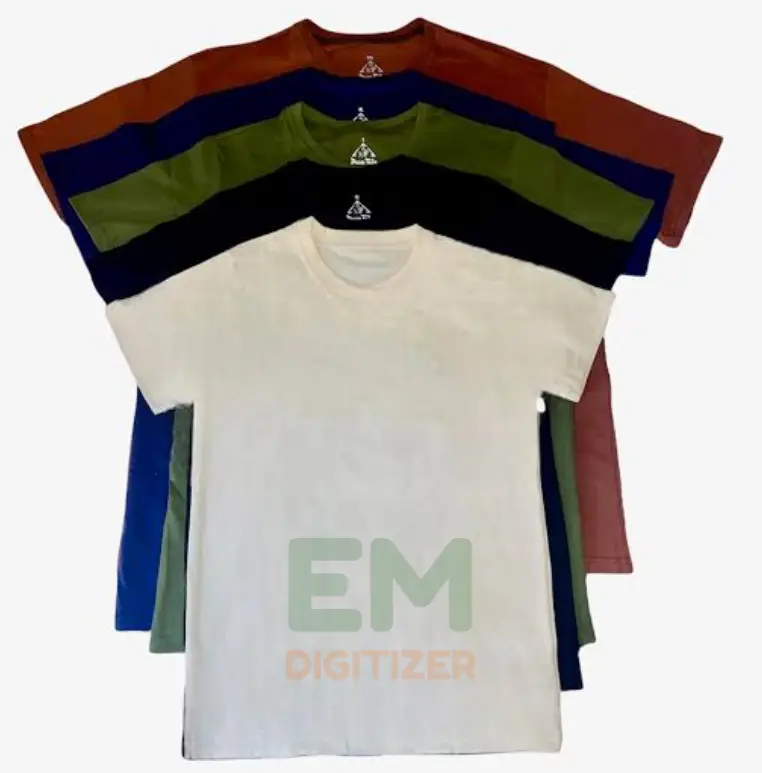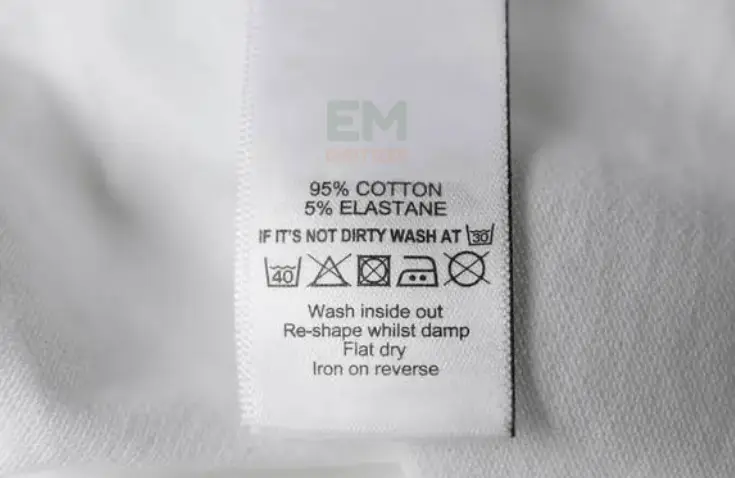What Is The Best T-Shirt Material To Wear? T-Shirt Fabric Guide

Each of us has bodysuits in the wardrobe made up of all materials for diverse occasions. Some we wore every day and the others for going out or partying.
Did you feel some T-shirts are pleasant to be dressed in whilst others feel rough? It’s all because of the stuff which is used to make that shirt.
To solve this puzzle, we are going to explore the best t-shirt materials along with hallmarks and pros in detail.
If you are looking for embroidery digitizing services, EMDigitizer is one of the best embroidery digitizing companies. Providing all types of embroidery digitizing Services. I recommend you try digitizing services.
Order NowGet Free QuoteTable of Contents
Why Does Picking The Best T-shirt Material Matter?
For convenience, design, and persistence, the best T-shirt material matters. The texture influences how a shirt is perceived by the skin.
Furthermore, the good material assists in regulating body heat and ensuring suitability for various terms.
For example, summertime is best for breezy cotton, but sturdy stuff such as fleece is fitted for winter. The Shirt’s protection from wear and scraped areas relies upon the stuff.
Here is a complete guide on What Is a Tri-Blend Shirt
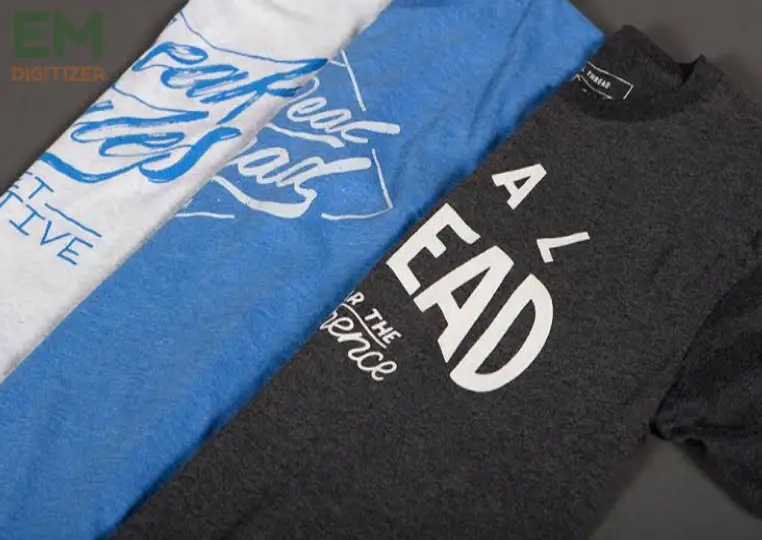
Few substances are expected to fade, stretch, or pill. Beyond comfort and durability, the environment plays a crucial role in material selection.
Sustainable and eco-friendly options are gaining popularity, reducing the impact on the planet. Additionally, your intended use for the T-shirt matters. Sports exercises require breathable textures that wick away sweat.
So, understanding the best t-shirt materials enables you to choose the right one for any event. At last, the shirt staff decides satisfactory choice.
Here is a complete guide on What Is The Softest T-Shirt Material
Which Is Better Material For Sublimation:
The choice of stuff can immensely determine the level and toughness of garments. We must investigate the best t-shirt materials to be dressed in.
There is a complete guide on the Comfort Colors Shirts
Classic Cotton:
From personal experience, I can attest that sublimation printing on cotton never disappoints. The results are stunning, with colors that pop and intricate details that shine.
The colors come to life, and the details are beautifully preserved, guaranteeing the ideal visual appeal of your creations.
For this reason, these shirts are characterized by their comfy touch on the skin. They absorb moisture easily, which is the main reason for their comfort.
Types:
Common types of cotton to be used for the best t-shirt material include:
Organic Cotton:
Organic cotton is a good choice because it’s grown without any man-made chemicals, which makes it better for the environment.
Combed Cotton:
Combed cotton is made by brushing out shorter fibers, which makes the fabric smooth and sturdy.
Pima or Supima Cotton:
The luxury version of cotton is extra soft and has extended threads to offer greater strength.
Features:
Take a look at the following attributes:
Softness: Naturally soothing and cozy for wearing.
Absorbency: Can soak up wetness.
Utility: It can be worn year-round.
Pros:
- Unbelievably comfy for regular wear.
- Less likely to irritate.
- Cotton is renewable and recyclable, making it useful to the surroundings.
- Washing and keeping up cotton is simple.
Cons:
- Cotton creases quickly and might need to be ironed.
- If cotton t-shirts aren’t pre-shrunk, they might condense after washing.
- Compared to other items, air drying could take longer.
Polyester T-Shirt:
This stuff is renowned for being long-lasting and capable of drying away sweat. They are excellent for active pursuits and sports.
A polyester mix T-shirt will help you stay fresh by draining off heat whether you’re heading to the workout or for an outing.
These shirts are fantastic during excursions and setting up camp since they won’t wrinkle without any problem.
Features:
The following features make polyester one of the best t-shirt materials:
Breathable:
This feature adds to its comfort factor, making it suitable for various activities and everyday wear.
Colorfastness: Colors in polyester T-shirts tend to remain vibrant and resist fading over time.
Quick Drying: The quick-drying nature of polyester makes it suitable for outdoor activities and travel.
Stain resistant:
Polyester doesn’t get stains as easily as some other fabrics. This means your custom designs will look nice and clean, even if things get a bit messy.
Pros:
- Polyester wicks away sweat and keeps you dry during exercise.
- Resists stretching, shrinking, and wrinkles, making them durable.
- Dries faster than cotton, ideal for on-the-go or outdoor adventures.
Cons:
- Can trap heat, making them less comfortable in hot weather.
- It can retain odors better than natural fibers.
- The production uses non-renewable resources.
Blend Of Cotton And Polyester:
Whether you’re making custom Shirts for individual use, occasions, or a business, cotton-polyester shirts are flexible. You can depend on them to keep up with their quality.
Unlike some materials that might crack or fade, the designs on cotton-polyester T-shirts stay fresh and bold even after multiple washes.
They are great for moisture management, making them suitable for sports and outdoor activities. You won’t feel suffocated or sweaty when wearing them, even in hot weather.
For example, a 50/50 cotton-polyester blend T-shirt balances comfort and functionality.
Pros:
- Blends combine the benefits of different fibers, offering softness and durability.
- They often have better moisture-wicking properties compared to pure cotton.
- Blends can resist wrinkles and maintain shape well.
Cons:
- The particular properties of the combination rely upon the extent of filaments, which can fluctuate.
- High-quality blended t-shirts can be more expensive than basic 100% cotton t-shirts.
- Some blends may not be as eco-friendly as organic or sustainable fabric choices.
Tri-Blend: The Best of Three Worlds
This mixture could be made of three different things cotton, rayon, and polyester, and produces a t-shirt that is cozy, long-lasting, and silky.
Uses:
You can wear these T-shirts for going out or as a stylish outfit for parties. They are not only soft to the touch but can make you feel modern too.
Pros:
- Tri-blends are incredibly soft and comfortable against the skin.
- They offer good durability and resistance to wrinkles.
- They have an extraordinary, finished look that gives a rare vibe.
Cons:
- More expensive than regular cotton T-shirts.
- Sublimation ink does not completely move onto the tri-mix texture, prompting a less characterized or clear print.
- Have a mottled appearance that results in lifeless designs.
Hemp: The Durable and Sustainable Option
As someone conscious of both comfort and environmental impact, hemp fabric ticks all the right boxes.
The slightly muted, vintage look adds character to the designs. If you’re aiming for a more natural aesthetic, hemp is the way to go.
Types:
The most popular varieties are:
100% Hemp: Made totally from hemp strands for incredible solidness and sturdiness.
Hemp Blends: For added warmth and flexibility, combined with cotton or reused textile.
Pros:
- Hemp is an extremely sustainable crop that requires little water and contains no pesticides.
- Hemp fabric is known for its strength and endurance.
- Its natural permeation helps you stay fresh in heat waves.
Cons:
- Hemp may be stiff at first but will soften with time.
- As it is susceptible to creases, ironing is required.
- Hemp is possibly less popular than rayon or cotton.
T-Shirt Care Tips: Making Your Shirts Last
Focusing on your Shirt materials is fundamental to guarantee their life span and keep up with their quality.
By practicing these care tips, you can extend the life of your best t-shirt materials and enjoy them for years to come.
Here are some practical care tips to make your shirts last:
- Wash dark, bright, and light-colored T-shirts separately to prevent color bleeding.
- Turn t-shirts inside out before washing to protect the design or print on the outside.
- Use a mild, color-safe detergent to prevent damage to the fabric or colors.
- If using a dryer, opt for low heat or air drying to prevent shrinking.
- For delicate materials, lay the T-shirt flat to air dry to maintain its shape.
- If ironing is needed, use a low heat setting and a cloth to protect the fabric.
- Regularly rotate and wear your T-shirts to avoid overuse of specific ones.
- Don’t leave T-shirts in direct sunlight for extended periods to prevent fading.
- Fix loose threads or small tears promptly to prevent further damage.
Conclusion
Always consider choosing the best t-shirt material according to your taste. We advise utilizing cotton or mixed materials for regular use.
For activewear, consider polyester. If sustainability is a priority, look into choices such as bamboo or hemp. And for scorching summer days, linen is suitable stuff.
Recall that the company and method of manufacture might have a mark on the t-shirt’s output. Whatever it is, the shirt that inspires you is the perfect one.
Some brands provide choices made of organically grown cotton and renewable materials. Check out certifications like GOTS for natural products.
Guidelines for protection can vary, but generally, follow the garment’s care label. Cotton may shrink in hot water, while polyester may require lower heat settings in the dryer.
Supima shirts have a premium, soft feel. They are often used in higher-standard, luxury clothing.
Performance t-shirts for sports are of material blended with nylon or polyethylene. These materials offer moisture-wicking properties and flexibility.
If you have any questions leave the comments or you can visit our social channels for more updates regularly. We provide embroidery digitizing services if you need digitizing services feel free to contact us or email us.
